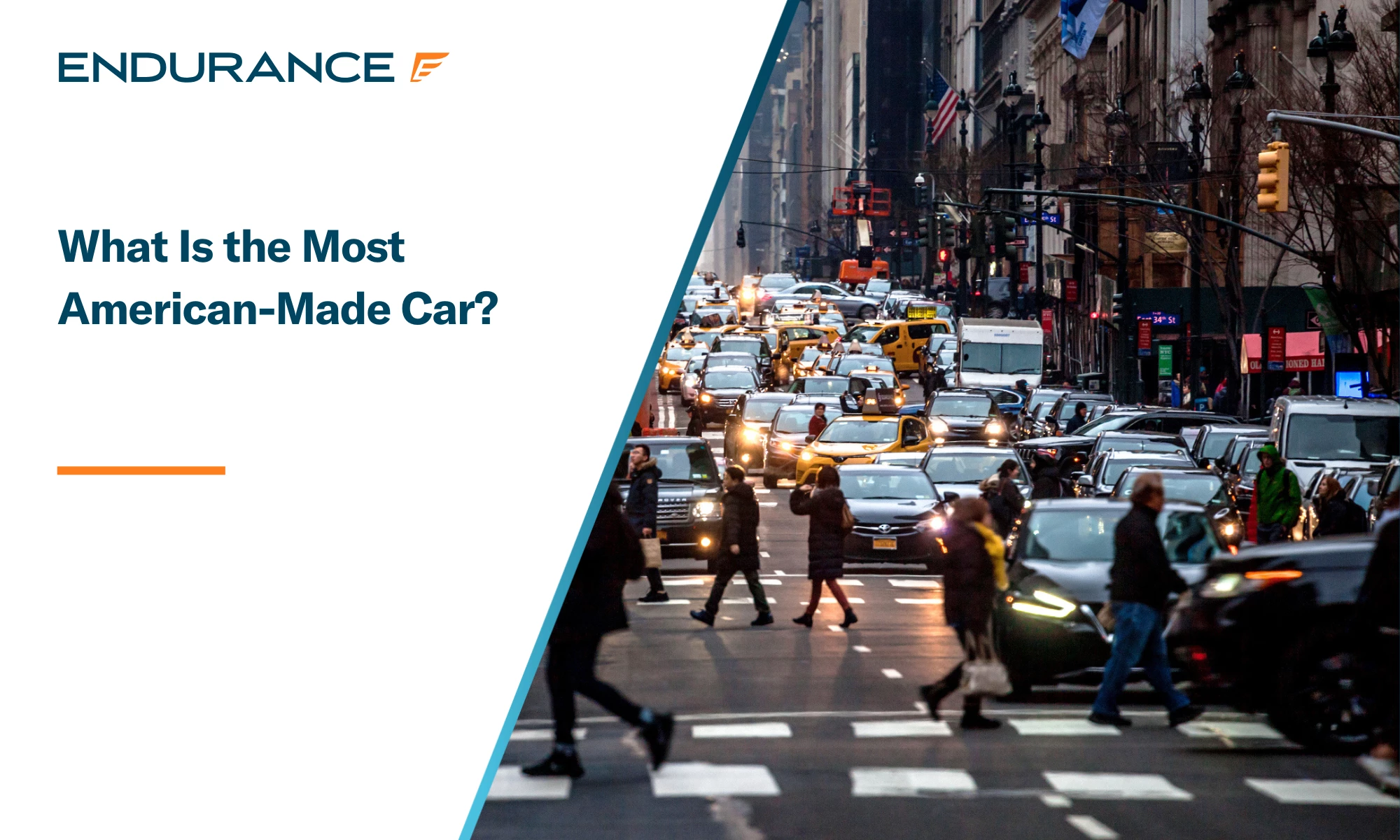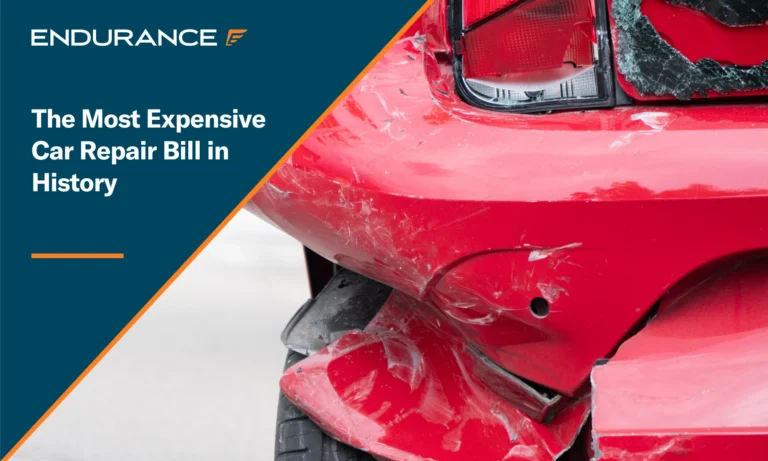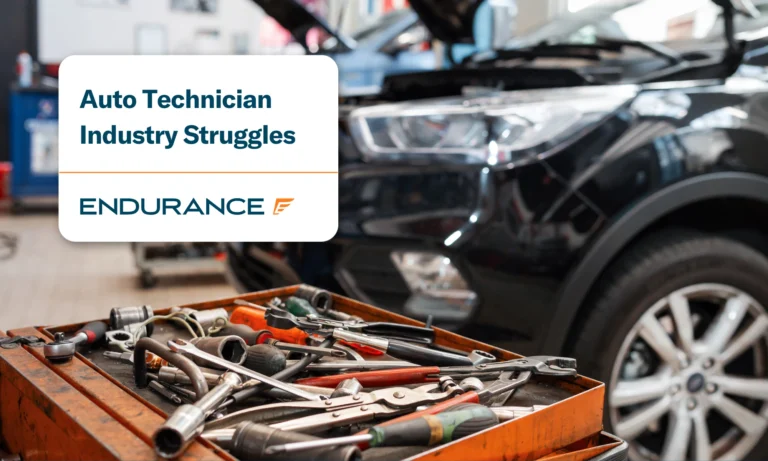What Is the Most American-Made Car? (2025)

The idea of an all-American-made car disappeared decades ago as automakers sought to become more efficient and profitable. As a result, cars built in the U.S. may incorporate parts made across the globe. A case in point is that the Toyota Camry is considered more “American-made” than the Ford F-150. At the same time, some iconic brands like Jeep and Dodge are no longer American-owned, further adding to the confusion.
Regardless, the desire to buy a car that’s produced as domestically as possible is strong among many consumers. Keeping this in mind, we’re exploring what American-made really means for car shoppers in 2025. We’ll look at the impact of international supply chains and multinational automakers while highlighting what vehicles actually earn the “most American-made” title.
How American-Made Cars Are Defined
What determines a car’s made-in-America status comes from several factors, especially where critical components are sourced from. The American Automobile Labeling Act (AALA) of 1992 mandates that automakers operating in the U.S. must report the origins of the parts for every vehicle sold here. Specifically, this includes:
- The percentage of U.S. and Canadian parts content by value (of the total price)
- Country of origin for the engine
- Country of origin for the transmission
- The final assembly location (city, state, and country)
Under the AALA, parts coming from Canada contribute to a car’s made-in-America quotient. In fact, a car assembled in Canada and composed mainly of Canadian-made parts (although this usually isn’t the case) can still be considered as made in America under the law. That’s a bit confusing, making the purchasing process challenging for consumers wanting to keep their money in the country.
Car shoppers searching for these details can visit the National Highway Traffic Safety Administration (NHTSA) website. The agency lists the automakers’ AALA reports by model and year, providing a helpful resource for curious consumers. The law also mandates that new cars have sourcing information available on the window sticker.
Top Contenders for the Most American-Made Car
Each year, Cars.com takes its own look at where U.S.-sold vehicles are manufactured. The website’s American-Made Index assesses assembly location, domestic parts content, engine sourcing, transmission sourcing, and U.S. factory employment. Among the 100 vehicles compared in the 2024 index, here are the top ten that qualify as the most American-made cars available.
1. Tesla Model Y
Assembly Locations: Fremont, California; and Austin, Texas
Tesla’s best-selling vehicle worldwide takes the top spot for being the most American-made vehicle. Curiously, the mechanically similar Model 3 sits in the #21 spot, while other Tesla models (see below) rank higher. Tesla also manufactures the Model Y in Germany and China.
2. Honda Passport
Assembly Location: Lincoln, Alabama
Honda’s sprawling Alabama factory is the source of many models that can proudly wear a made-in-America label. The Passport is the two-row version of the larger Pilot, which occupies 14th place in the American-Made Index.
3. Volkswagen ID.4
Assembly Location: Chattanooga, Tennessee
Initially built in Europe, VW shifted production of its first purpose-built EV for the U.S. market to Tennessee. The move helped the automaker reduce prices while enabling the ID.4 to qualify for federal incentives (which no longer apply in 2025 as of this writing).
4. Tesla Model S
Assembly Location: Fremont, California
Tesla’s first sedan debuted in 2012 and continues showcasing its red, white, and blue origins. According to the 2024 AALA reports, the Model S has 15% of its parts from Mexico, the least of any Tesla model sold in the U.S.
5. Honda Odyssey
Assembly Location: Lincoln, Alabama
The venerable Honda Odyssey minivan shares its platform with the Ridgeline (#6), Pilot, and Passport. So, it’s no surprise that it ranks highly as an American-made vehicle. Its closest competitor, the Toyota Sienna, earns 46th place. The Chrysler Pacifica didn’t even rank within the top 100.
6. Honda Ridgeline
Assembly Location: Lincoln, Alabama
Truck buyers may be shocked that the most American-made pickup wears a Honda badge. Much of this is because the engine and transmission are built in the U.S., which isn’t always true with the Ford F-150 and Chevrolet Silverado.
7. Toyota Camry
Assembly Location: Georgetown, Kentucky
The Camry earns bragging rights as America’s favorite sedan and the top Toyota on the American-Made Index. Despite its Japanese origins, only 10% of its components come from the Land of the Rising Sun.
8. Jeep Gladiator
Assembly Location: Toledo, Ohio
Jeep’s Ohio factory has long served as the main production facility for its signature Wrangler SUV (#30), which shares many components with the Gladiator pickup.
9. Tesla Model X
Assembly Location: Fremont, California
Tesla’s flagship SUV also ranks high on the American-Made Index. Interestingly, it’s produced at a factory that used to be a joint production facility for Chevrolet and Toyota vehicles.
10. Lexus TX
Assembly Location: Princeton, Indiana
The Lexus TX is Toyota’s newest model, but this three-row crossover still ranks high for its high amount of American content. The TX shares its platform with the Toyota Grand Highlander, which ranks 11th.
The Role of Parts Sourcing in American Car Manufacturing
What goes into a car is as crucial to its made-in-America status as is the final assembly location. As we’ve covered in the top ten vehicles, the source of key components like the engine and transmission have a significant impact.
It’s essential to understand that in today’s globalized auto industry, it’s impossible to have a vehicle made 100% in the U.S. First, there’s the Canada factor we mentioned. Next, parts come from all over the world as automakers look to produce components as efficiently as possible, and efficiency usually means at the lowest possible cost.
Even “all-American” cars rely on parts from outside the U.S., impacting the made-in-America calculation. Let’s expand on this by reviewing the 2024 AALA data for a few American brand nameplates:
| Make/Model (2024) | Percent from Other Countries |
| Buick Enclave | 35% (Mexico) |
| Cadillac Escalade | 36% (Mexico) |
| Chevrolet Equinox | 42% (Mexico, China, Argentina, Canada) |
| Chevrolet Silverado | 36% (Mexico, Canada) |
| Ford Mustang Mach-E | 51% (China) |
| Ford Mustang | 17% (Mexico) |
| Ford F-150 (varies by engine) | Up to 32% (Mexico) |
| Lincoln Nautilus | 86% (China) |
Clearly, some models perceived as American-made are anything but. Even some luxury models aren’t exempt from how automakers approach manufacturing in today’s world.
Why Buying an American-Made Car May Matter
Beyond patriotism, there’s a practical side to purchasing an American-made car: supporting the U.S. economy and job market. Buying a car high in domestic content and U.S. assembly translates directly into helping American manufacturing and well-paying careers.
Further, the auto industry contributes significantly to America’s gross domestic product (GDP), a critical measurement of economic health. This goes beyond the assembly line and includes companies that gather the raw materials and produce the parts and components.
The Alliance for Automotive Innovation, an industry group, puts these contributions into hard, eye-opening figures:
- The auto industry annually adds $1 trillion, or almost 5%, to the U.S. economy.
- About 9.6 million American jobs are connected to the car business.
- The U.S. automotive sector is responsible for $105 billion in yearly exports.
- For every job directly tied to auto manufacturing, another 10.5 supporting roles are created.
- Each $1 in auto manufacturing generates an additional $3.45 in economic value.
These meaningful numbers underscore the importance of choosing an American-made car, even if such a vehicle is harder to define in today’s globalized era. These purchases strengthen the country’s manufacturing base and economic durability.
Endurance Warranty Coverage for Your Vehicle
Protecting your investment is essential whether you choose an American-made car or a vehicle with more global origins. An extended car warranty, also known as a vehicle service contract, from Endurance can provide peace of mind and protection from breakdowns and surprise repair bills. Endurance offers a range of auto protection plans that balance coverage needs and budgets. Options include a powertrain program covering the engine, transmission, and drive axle, often the most expensive systems to repair. More expansive coverage includes a plan similar to a new car bumper-to-bumper warranty. Endurance also has plans for select luxury models, high-mileage cars, and commercial-use vehicles.
Learn all the advantages of Endurance Warranty by requesting a FREE quote or visiting the Endurance online store for instant plan and pricing information. For personalized help, our plan advisors are available by phone at (800) 253-8203.
Check out the Endurance blog for expert-written articles covering car repairs, maintenance tips, warranty advice, vehicle reviews, industry insights, and more.













Dave is an automotive journalist combining a deep passion for cars, hands-on mechanical experience, and dealership insight. His writing primarily focuses on consumer auto advice and enthusiast pieces. A regular contributor to SlashGear.com and other leading automotive platforms, Dave earned his BA in Journalism from The George Washington University.